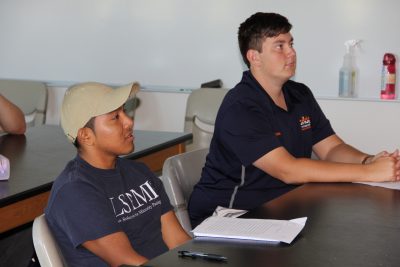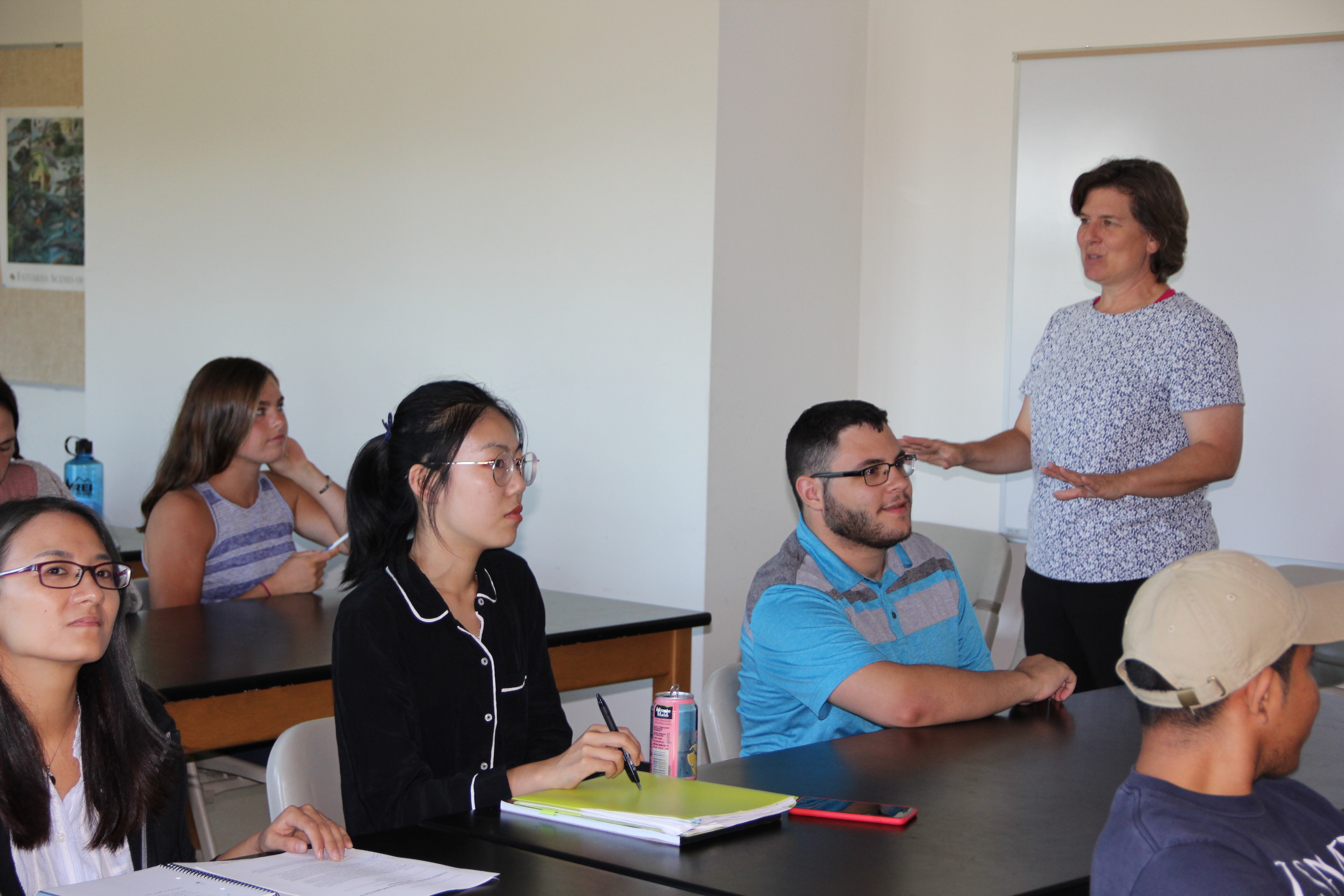Alex Da Silva and Tony Arreaga Jr., both juniors at the University of Connecticut majoring in environmental engineering, are looking to apply the technical skills they’ve learned to climate change problems.
They envision future careers working on low-impact development projects, helping shoreline towns to become more prepared for intense storms and other ways of making communities more resilient as sea levels rise and the planet warms.
“This is definitely something we need to be focused on,” said Arreaga, who came to UConn from Cincinnati, Ohio.
Added Da Silva, a student from New Haven: “In most of the other courses we took, climate change was more ancillary.”
But in the course they and 13 other students are taking this semester with Juliana Barrett of Connecticut Sea Grant and Bruce Hyde of CLEAR, climate change and its impacts in Connecticut and beyond are front and center. The new class, “Climate Resilience and Adaptation: Municipal Policy and Planning,” covers topics such as sea level rise, climate change science and policy, public health impacts and land use planning in the context of a changing environment. The class is supported by a grant from the UConn Provost’s Office.
“Some other courses I’ve taken focus on climate change as a problem, but not on solutions,” said another student, Casey Lambert, a junior from Branford majoring in environmental science. “But my goal is to work on the side of sustainable development.”
All three students said that one of the most enticing aspects of the new class is the chance it will give them in the spring semester to do field work directly with towns. As part of a “Climate Corps,” the students will be assigned service learning projects related to climate change adaptation issues in communities around the state.
“I thought it was really important for me to get some hands-on experience,” Arreaga said.
For the Sept. 28 class, students learned about the work of EcoHusky, a student group that works with the UConn Office of Environmental Policy on initiatives to make the campus more environmentally friendly. Eco-Husky co-presidents Adrianna Antigiovanni and Christen Bellucci, described how the group works to increase trash recycling, hosts clothing swaps and environmental fairs and sends delegates to international climate conferences.
After their presentation, Barrett, associate extension educator at Sea Grant, reminded students about the upcoming mid-term exam. Hyde, assistant extension educator at CLEAR, asked for a show of hands to learn how many students had taken courses in municipal planning as he prepared for classes about disaster preparedness and natural hazard mitigation.
“In other classes, we focused more on how technical systems work, but in this class, you get the human aspect,” said Da Silva.
To learn more about the class, visit: http://climate.uconn.edu/climate-corps/

Juliana Barrett, associate extension educator at Sea Grant, teaches a new class at the UConn Storrs campus called, "Climate Resilience and Adaptation: Municipal Policy and Planning."